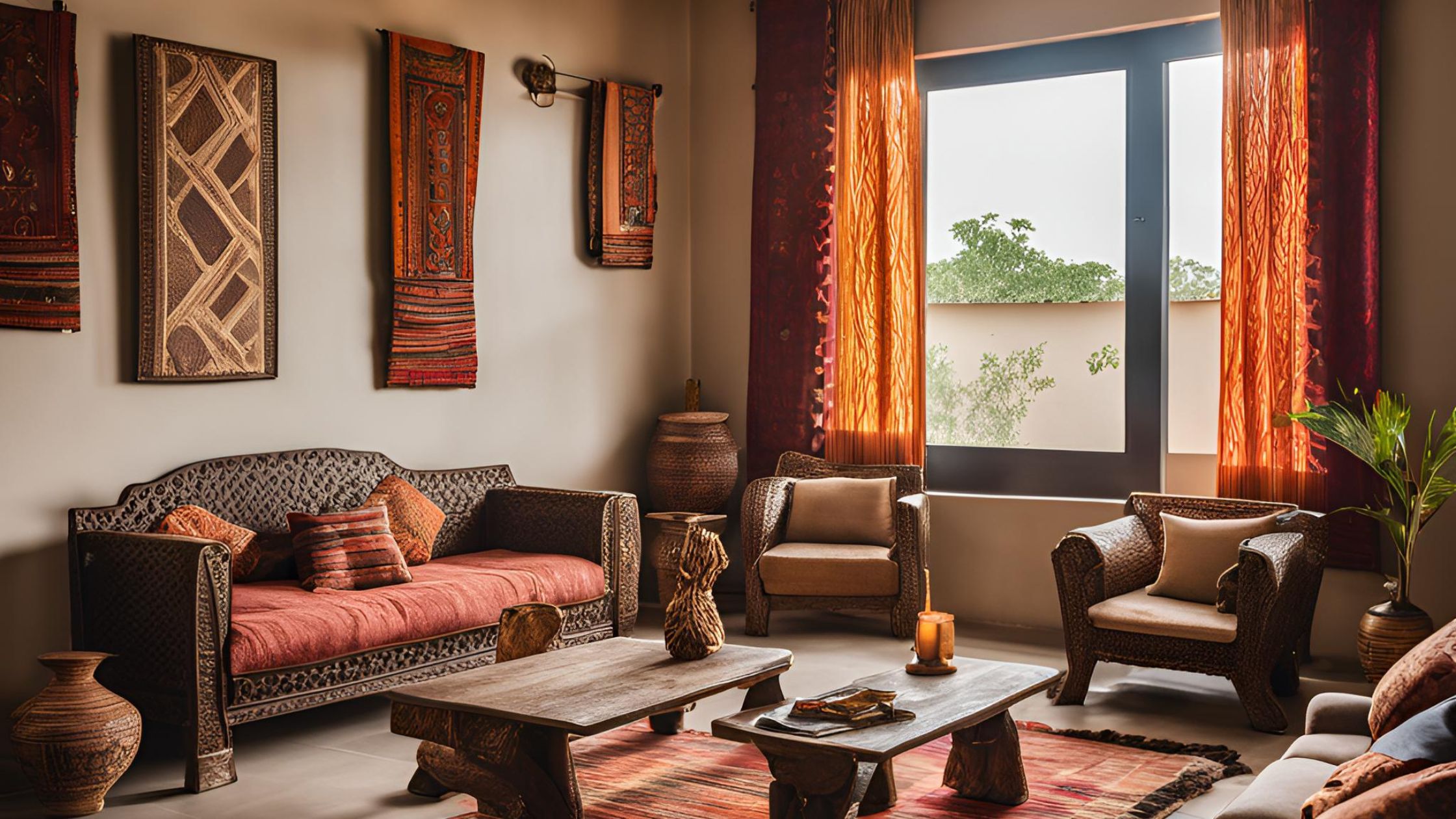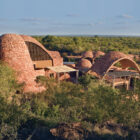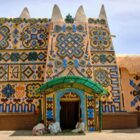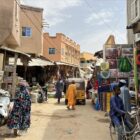Northern Nigeria is a region with a rich cultural heritage, which deeply influences its interior design. With a unique blend of Hausa-Fulani traditions, Islamic influences, and modern innovations, the 2024 interior design trends for Northern Nigeria are an exciting fusion of the old and new. The city of Kano, being one of the region’s cultural and commercial hubs, stands as a focal point for these evolving trends. As interior design increasingly becomes a way for people to express their identity, 2024 will witness a variety of styles that merge functionality, culture, and modern aesthetics in ways that are both exciting and meaningful.
In this blog, we will explore the top interior design trends expected to shape homes, offices, and public spaces across Northern Nigeria, particularly in Kano, in 2024. Whether you are a homeowner looking to refresh your space or an interior designer searching for inspiration, these trends will help guide you toward making stylish and culturally relevant choices.
Fusion of Tradition and Modernity
In Northern Nigerian interior design, one trend that has been growing in popularity and will be more pronounced in 2024 is the fusion of traditional and modern elements. Designers are seeking a balance between the historical aesthetics of Hausa-Fulani architecture and contemporary minimalism. This blend of tradition and modernity creates spaces that feel both familiar and forward-thinking.
- Traditional Hausa Motifs: Geometric patterns and motifs, often seen in Northern Nigerian textiles and architecture, are being incorporated into modern spaces. These designs will be reflected in everything from wallpapers and upholstery to tiles and art pieces.
- Islamic Architecture Influences: Intricate Islamic designs, particularly arabesque patterns and mashrabiya-inspired screens, continue to influence interior spaces. In 2024, expect to see more laser-cut metal and wood screens being used as decorative room dividers or window coverings.
- Minimalist Furniture with Ethnic Details: Furniture pieces, while staying true to modern lines, will feature ethnic details such as carvings, embroidery, or the use of local fabrics like “adire” and “anko.”
This fusion trend caters to individuals who want their homes to be modern and functional but still retain a deep connection to their cultural roots.
Sustainable and Locally Sourced Materials
Sustainability has become a global concern, and the interior design world is not left out. In Northern Nigeria, where artisanal craftsmanship has long been a tradition, 2024 will see a surge in the use of locally sourced, eco-friendly materials. People are becoming more conscious of the environment, and this is reflected in their choice of materials for interiors.
- Bamboo and Rattan Furniture: Locally sourced bamboo and rattan are being used to craft lightweight, durable, and stylish furniture. This sustainable trend not only supports local artisans but also reduces the carbon footprint.
- Clay and Terracotta Tiles: Clay is a traditional building material in Northern Nigeria, and in 2024, its use in interior design will extend to terracotta tiles for floors, walls, and even decorative pieces. These tiles offer a rustic charm while being eco-friendly and energy-efficient.
- Recycled Textiles: Designers are increasingly opting for fabrics made from recycled materials. For instance, recycled cotton and jute are being woven into rugs and upholstery, offering an environmentally friendly yet luxurious touch to living spaces.
This trend emphasizes the importance of supporting local artisans, preserving traditional crafts, and making eco-conscious choices, all while creating beautiful and functional spaces.
Color Palettes Inspired by Nature
Northern Nigeria’s landscape, from its sprawling deserts to verdant oases, provides an abundance of natural inspiration. In 2024, the region’s interior design color palettes will increasingly reflect these natural tones, creating spaces that feel serene and harmonious.
- Desert-Inspired Neutrals: Soft shades of beige, sand, and taupe will dominate the color scene. These neutral colors create a warm, calming atmosphere that feels timeless and inviting.
- Earthy Browns and Ochre: Shades of brown, from deep chocolate to lighter ochre, will be popular choices for accent walls, furniture, and textiles. These colors echo the rich earth tones of Northern Nigeria and bring warmth and depth to a room.
- Vibrant Jewel Tones: While the foundation of many designs will be neutral, jewel tones like sapphire blue, emerald green, and ruby red will be used as bold accents. These colors, inspired by the intricate embroidery and traditional attire of the Hausa-Fulani people, add vibrancy and a touch of luxury to the interiors.
The nature-inspired color palette reflects a growing desire for spaces that feel natural, tranquil, and connected to the local environment.
Textiles and Fabrics with Cultural Significance
Textiles play a significant role in Northern Nigerian interior design. In 2024, traditional fabrics will continue to inspire interior designers, not just as clothing but also as an integral part of home décor. The use of textiles in drapery, upholstery, and wall hangings offers an easy and versatile way to incorporate culture into modern interiors.
- Adire and Ankara Fabrics: These locally produced fabrics, known for their bold patterns and vibrant colors, will be used in innovative ways, such as upholstery for sofas, cushions, and even as wall art.
- Kano’s Indigenous Weaving: Handwoven textiles, made using traditional techniques from the Kano region, will gain popularity in home design. These textiles will be showcased in tapestries, blankets, and rugs, adding both texture and history to living spaces.
- Tuareg-Inspired Rugs: Handwoven Tuareg rugs, traditionally made by nomadic groups in the region, will see a resurgence in Northern Nigerian homes. Their geometric patterns and neutral tones complement modern interiors while paying homage to the region’s history.
By embracing these textiles, Northern Nigerian homeowners can incorporate their heritage into their homes in a way that feels fresh and contemporary.
Handcrafted and Artisan-Crafted Furniture
In 2024, the demand for handcrafted and artisan-made furniture in Northern Nigeria will continue to rise. Mass-produced furniture may be functional, but handcrafted pieces bring a unique charm, quality, and sense of personal history to a home.
- Hand-Carved Wooden Furniture: Northern Nigeria is known for its intricate wood carving traditions. Hand-carved wooden furniture pieces, whether in the form of chairs, coffee tables, or cabinets, are making a strong comeback. These pieces are often seen as heirlooms that are passed down through generations, and their artisanal nature adds an irreplaceable sense of authenticity to any space.
- Leather Upholstery: Leatherwork, particularly from Kano, is renowned for its quality and craftsmanship. In 2024, expect to see more leather upholstery and leather accents on furniture. Whether it’s a leather armchair or a leather ottoman, these pieces exude both elegance and durability.
- Metalwork and Brass Detailing: Artisans from the region have long been skilled in metalworking, and this will be increasingly reflected in interior designs. Wrought iron and brass fixtures, lamps, and decor will add a rustic yet modern element to spaces.
Handcrafted furniture tells a story, and as people increasingly look for meaningful, personalized design choices, this trend will continue to grow.
Open Spaces with Courtyards and Indoor Gardens
The idea of merging indoor and outdoor living has been a common architectural feature in traditional Northern Nigerian homes. Courtyards and indoor gardens are making a strong comeback in 2024 as people seek a connection to nature and more open, breathable spaces.
- Central Courtyards: Traditional homes often featured a central courtyard, an open-air space that acted as the heart of the home. This trend is being adapted in modern homes with courtyards that double as green spaces. Whether in the form of a small garden, a fountain, or a sitting area, these courtyards serve as tranquil spots for relaxation and social gatherings.
- Vertical Gardens and Indoor Plants: Indoor plants will continue to be a key part of interior design in 2024. From small potted succulents to large leafy plants, greenery adds life to a space and improves air quality. Vertical gardens, which make use of wall space to grow plants, are becoming popular in urban homes where space is limited.
This trend emphasizes the importance of biophilic design, where natural elements are incorporated into interiors to improve well-being and create a serene living environment.
Lighting Inspired by Traditional Designs
Lighting plays a critical role in setting the tone of a room, and in 2024, we will see more Northern Nigerian homes incorporating traditional lighting designs.
- Moroccan-Inspired Lanterns: Lanterns with intricate cut-out designs, inspired by Moroccan and Islamic lighting, will be a popular choice for both indoor and outdoor spaces. These lanterns create soft, ambient lighting and often serve as decorative pieces themselves.
- Brass and Copper Fixtures: Brass and copper lighting fixtures will bring a warm, metallic sheen to interiors. These metals, often used in traditional Northern Nigerian crafts, are being reinterpreted in sleek, modern designs for chandeliers, pendant lights, and wall sconces.
- Natural Lighting: Open windows, skylights, and large glass doors that allow for ample natural lighting are becoming more common. Not only does natural light make spaces feel larger and more welcoming, but it also reduces the need for artificial lighting during the day, contributing to energy efficiency.
Lighting is no longer just about function; it’s about creating ambiance and highlighting the cultural and architectural features of a space.
Multi-Functional Spaces and Smart Home Integration
As homes get smaller, particularly in urban centers like Kano, there’s an increasing demand for multi-functional spaces that maximize the use of every square meter. In 2024, Northern Nigerian interiors will
embrace smart design solutions that cater to the modern lifestyle while keeping cultural aesthetics intact.
- Flexible Furniture: Pieces such as fold-out desks, sofa beds, and modular shelving will be key in creating versatile living spaces that can adapt to different needs, whether it’s for work, relaxation, or entertaining guests.
- Smart Home Technology: The integration of smart home technology into interior design will continue to grow in 2024. From automated lighting systems and climate control to smart security, technology will make homes more efficient and convenient. However, the challenge will be to integrate this technology in a way that doesn’t disrupt the traditional design elements but complements them.
Multi-functional spaces and smart home technology reflect the evolving needs of homeowners, providing convenience while still maintaining an aesthetic balance.
Conclusion
The Northern Nigerian interior design trends of 2024 present a unique blend of cultural heritage and modern innovation. From the use of traditional textiles and hand-carved furniture to the rise of smart home integration and sustainable materials, these trends offer something for everyone. Whether you are looking to refresh a single room or redesign your entire home, incorporating these elements will ensure your space feels both timeless and forward-thinking.
By staying connected to the cultural roots of Northern Nigeria while embracing the innovations of today, these trends will help create interiors that are not only stylish but also meaningful.




